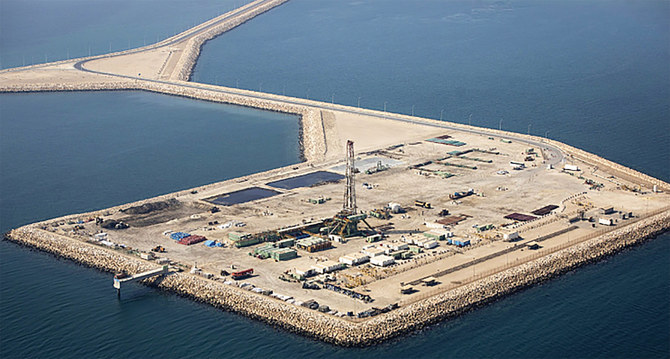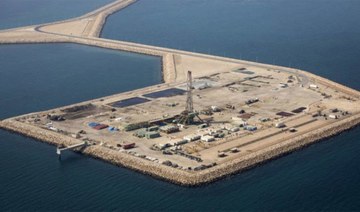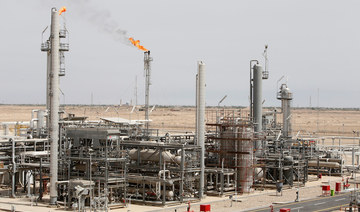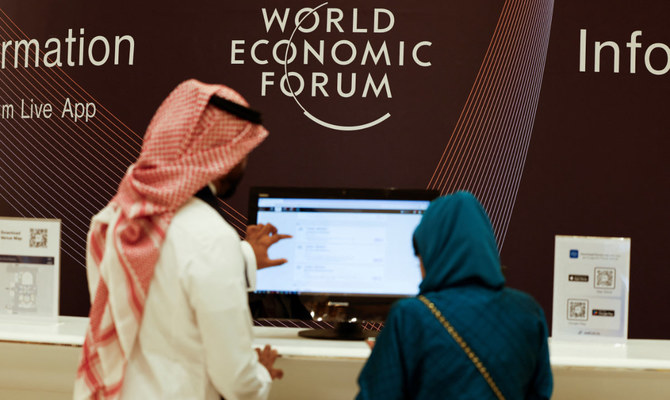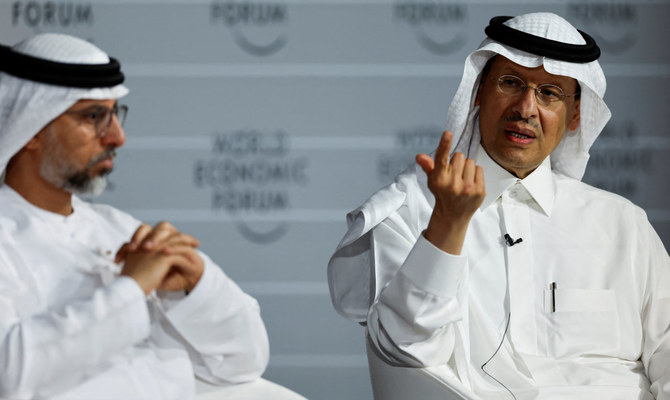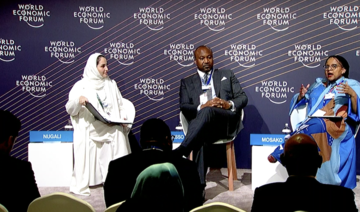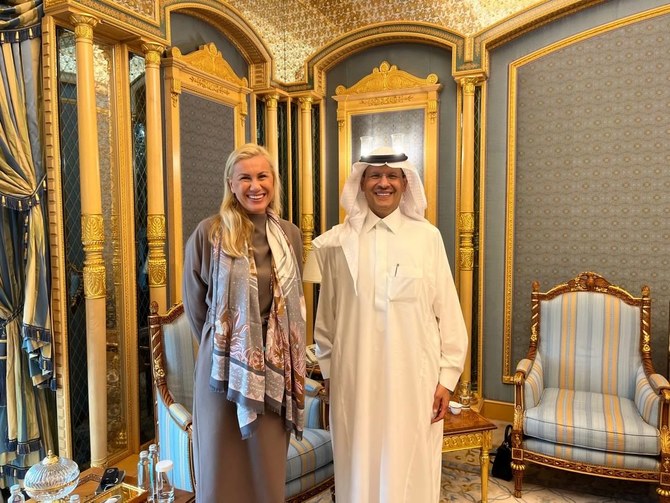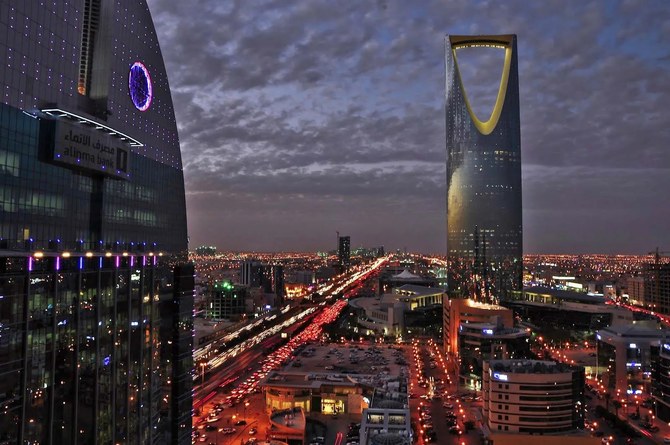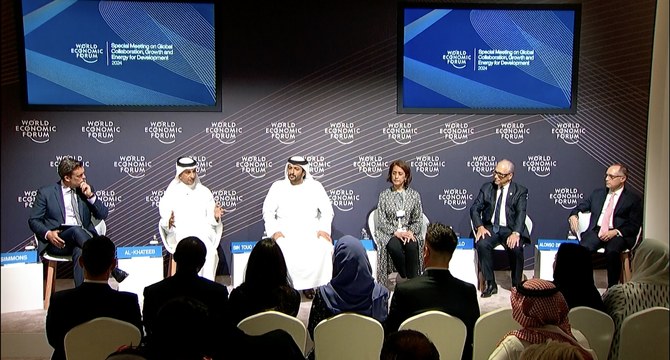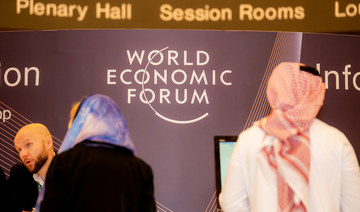RIYADH: Saudi Arabia and Kuwait have asserted exclusive ownership of the Al-Durra gas field in the maritime “Divided Area” after tensions with Iran rose once again in the long-running dispute over the lucrative site.
The Saudi minister of foreign affairs reaffirmed the joint ownership, calling on Iran to engage in negotiations to demarcate the eastern border of the area.
The Kuwaiti oil minister also rejected Iran’s claims over the field and urged Tehran to initiate discussions about the area.
In a statement released by the Saudi Press Agency on Tuesday, a Foreign Ministry source emphasized the natural resources in the “Divided Area” are solely owned by Saudi Arabia and Kuwait.

“We renew our previous calls for Iran to start negotiations to demarcate the eastern border of the submerged divided area between the Kingdom and Kuwait, as one negotiating party opposite the Iranian side,” the ministry stated.
Following Saudi Arabia’s declaration, Kuwait also asserted its exclusive rights over the Al-Durra gas field. According to state news agency KUNA, Kuwaiti Oil Minister Saad Al-Barrak expressed strong opposition to Iran’s planned activities in the area.
“We categorically and totally reject Iran’s planned activities around the premises of the Al-Durra offshore gas field,” Al-Barrak said,
In an interview with Asharq during the 8th Organization of the Petroleum Exporting Countries’s International Seminar, he added: “Iran must first enter into the demarcation of international borders, and after that, whoever has a right will get it according to the rules of international law.”
A source close to Kuwait’s Foreign Ministry revealed to KUNA that the “maritime area where Al-Durra offshore field lies is part of the State of Kuwait’s sea territories, and the natural resources therein are shared between Kuwait and Saudi Arabia,” dismissing any claims by Iran.
The source added: “Only the state of Kuwait and Saudi Arabia have exclusive rights to the natural resources of the Al-Durra field.”
This assertion solidifies Kuwait’s position and underscores the shared ownership between the two neighboring countries.

Kuwaiti Oil Minister Saad Al-Barrak says his country categorically and totally reject Iran’s planned activities around the premises of the Al-Durra offshore gas field. (Supplied)
The dispute over the Al-Durra gas field has been ongoing for many years. In March, Kuwait and Iran held joint negotiations in Tehran, emphasizing the need to resolve the matter in accordance with international laws.
Iran’s persistence in pursuing activities in the area however adds to the complexity of the dispute and poses challenges to achieving a resolution.
The Al-Durra gas field is a common submerged area between Saudi Arabia and Kuwait located in the Arabian Gulf. It is situated within the Al-Ahsa governorate, which is a part of the Eastern province of Saudi Arabia.
The discovery of this oil field dates back to the 1960s, which coincided with the commencement of the demarcation process for the maritime borders between Saudi Arabia and Kuwait.
TIMELINE
• 1967 Al-Durra gas field discovered.
• 2013 Talks stall between Saudi Arabia, Kuwait and Iran.
• 2019 Saudi Arabia and Kuwait resume production from Neutral Zone fields.
• 2022 Saudi Arabia and Kuwait sign MoU to invest in Al-Durra gas field.
• 2023 Resources in Neutral Zone confirmed to be fully owned by Saudi Arabia and Kuwait.
The ownership of the field was evenly divided between the two countries, becoming effective in 1970.
The gas field is one of the largest in the world with abundant natural gas reserves.
It is expected to produce 1 billion cubic feet of gas daily and 84,000 barrels per day of condensate, and plays a significant role in Saudi Arabia and Kuwait’s gas production.
The Al-Durra oil field’s strategic importance and the potential wealth it holds have attracted the attention of neighboring countries, particularly Iran.
The dispute over its ownership and exploitation rights arises from differing interpretations of maritime boundaries and conflicting claims by Tehran.
In 2001, Iran began granting contracts for its exploration, which prompted Saudi Arabia and Kuwait to finalize the demarcation of their maritime borders, which included the Al-Durra oil field.
Despite objections from Iran, Saudi Arabia and Kuwait signed an agreement in 2022 to jointly develop and explore the field.
IN NUMBERS
• 1 billion cubic feet estimated daily gas production.
• 84,000 barrels estimated daily production of liquefied natural gas.
The controversies surrounding the operations escalated following Iran’s announcement in June that it was prepared to commence drilling in the Al-Durra gas field.
Mohsen Khojsteh Mehr, the managing director of the National Iranian Oil Co., indicated that Iran is allocating sizeable resources for exploring the site.
“Considerable resources have been allocated to the board of directors of the National Iranian Oil Co. for the implementation of the development plan for this field,” said Mehr, according to Iranian state media.
Despite attempts at negotiations and agreements between Kuwait, Saudi Arabia, and Iran, a definitive resolution to the dispute has remained elusive, leading to ongoing tensions and disagreements in the region.
The competing claims and Iran’s readiness to begin drilling in the Al-Durra field further exacerbate the tensions in the region.
As the situation unfolds, it remains to be seen whether diplomatic negotiations or other means will be employed to reach a mutually agreeable resolution between the concerned parties.



